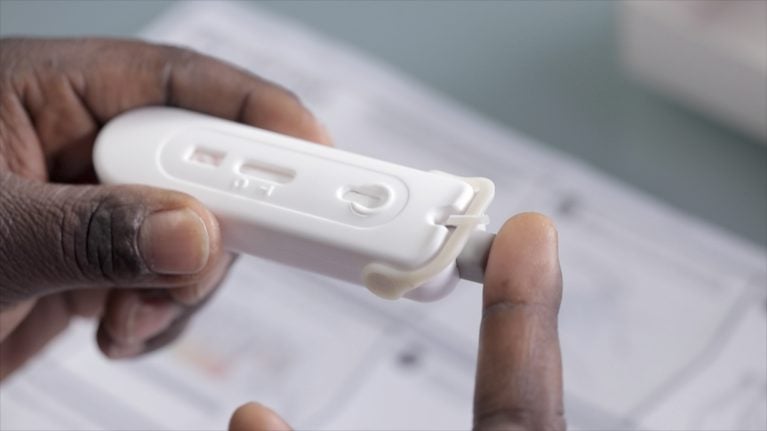What,s ST how soon should someone test after a potential HIV exposure?
HIV self-testing is a process in which a person collects his or her own specimen (either oral fluid, sometimes called saliva, or else blood from a finger prick), then performs a rapid HIV test and interprets the result. If the result is positive, the person seeks retesting at a facility to confirm this result or not. If the result of the self-test is negative, no further action is required unless the person has had a recent likely HIV exposure or faces high ongoing risk of HIV infection. In those cases, later repeat testing should be considered.
HIV self-test kits detect HIV antibodies, which develop in the weeks after acquiring HIV infection. As with any form of HIV testing, a self-test will not detect these and be positive for at least six weeks after an HIV exposure. Therefore, people should be advised to self-test three months after a potential HIV exposure to be sure that the result is accurate.

